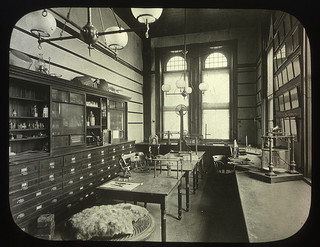 In a recent blog post, I made some suggestions for good summer reads that offer a relaxing break from the academic routine—a way to shift your mind into summertime gear. But of course, what counts as a break depends on what you want a break from. For some readers, summer is a great time to try out something new, odd, arduous, or just different from established patterns. Here, then, are some candidates for experimentation.
In a recent blog post, I made some suggestions for good summer reads that offer a relaxing break from the academic routine—a way to shift your mind into summertime gear. But of course, what counts as a break depends on what you want a break from. For some readers, summer is a great time to try out something new, odd, arduous, or just different from established patterns. Here, then, are some candidates for experimentation.
- Looking for an weird, unsettling or Gothic counterpoint to the sunshine? If you’ve already had your fill of Edgar Allan Poe, try Angela Carter, H. P. Lovecraft, Flannery O’Connor, Tim O’Brien—or, of course, one of the Brontës.
- Summer can be the best time to savor a giant modernist novel, like The Magic Mountain, The Man Without Qualities or Ulysses. Each of these doorstops can take months to read, giving the entire season one very specific, very strange flavor. Yummy.
- Perhaps you’d prefer something utterly contemporary. A great place to start is with the Writing Seminars fiction-writing faculty, past and present: John Barth, Glenn Blake, Tristan Davies, Stephen Dixon, Matthew Klam, Brad Leithauser, Alice McDermott, Jean McGarry, and Robert Roper.
- If your reading time (or your tolerance for novelty) is limited, check out the new super-brief variety of short story, the “short short” also known as “sudden fiction.” Each tiny narrative, like a slice of chile, will generate some big heat.
- If fiction is your usual fare, maybe now is a good time to test-drive a book about science? Because of Hopkins’ science writing program, we make it a point to collect science books for non-specialists. Get a sense of what we have by searching for “science popular works” (no quotation marks) as a subject in Catalyst’s “advanced search“; this will capture a big slice of “how” and “why” books in astronomy, biology, chemistry, etc. If you’d prefer a good science story, like The Immortal Life of Henrietta Lacks or The Disappearing Spoon, investigate options by starting with an anthology or a book in the annual Best American Science Writing series.
- If you’re already a tried-and-true non-fiction reader, now it’s your turn: I challenge you to take on a whole book of poetry. What about some humor or goofy nonsense verse? E.g., Edward Lear, Ogden Nash, Lewis Carroll (not just the author of Alice in Wonderland but a talented mathematician, logician, and rhymster) or T. S. Eliot’s Book of Practical Cats (yes, it is the basis for the musical Cats).
- Or, investigate poets whose work evokes a specific, tantalizing summertime mood: poets like Kay Ryan (short, cool, sharp poems like little icicles), W. S. Merwin (a bit wistful and mystical and saturated with the warm, humid atmosphere of Hawai’i), Mark Doty (perfect for romantic, melancholy summer evenings) and Lucille Clifton (perfect for hot city stoops and kitchens).
- Go on a small press hunt. Small presses—little, independent publishing companies—are the safe havens of experimental writing; they often focus on the very work that mainstream presses, in search of broad commercial appeal, want to avoid. Hallelujah for the small press! But it’s not like we can punch “small press” into Catalyst and come up with a list of everything these guys have published. For one thing, for obvious financial reasons, small presses are always going in and out of business; for another, Catalyst doesn’t know what counts as a small press, stupid robot. With your big human brain, however, you can hunt ’em down. Start with the Poets & Writers Database of Small Presses, locate a press that sounds intriguing, then search for the press name in Catalyst’s “advanced search” as a publisher.
There are so many routes to explore…and so many ways to find new books to try. We’d love to know: how do you scout out reading options, and what do you read when you’re eager to experiment?
